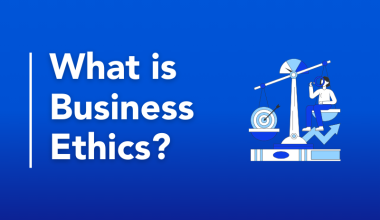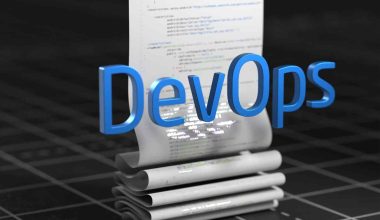I’ve been interviewing for years now, and I’m a pretty good interviewer. But I have to admit I still get nervous before my camera lights up and the sound of my voice comes through the headset. It’s hard to be yourself in that moment—and it’s even harder when you don’t know what questions are coming your way. To help you out with that issue, here are some tips on how to prepare for a virtual interview:
Do your homework.
The first thing you want to do is get familiar with the company and role you’re interviewing for. Here are some things you can look up:
The company website, including its social media presence
The interviewer’s background, experience, and qualifications (if available)
Job descriptions for similar roles at other companies in the industry
Practice with a friend or family member.
If you’re going to be a virtual interview pro, then you have to practice. You wouldn’t go into an in-person interview without having prepared beforehand and practiced answering common questions (and knowing the right answers), would you? The same goes for virtual interviews–you need to prepare and practice before your big day!
Practice answering common interview questions
Practice answering questions about yourself
Practice answering questions about your background
Practice answering questions about the company
And finally…
Practice some common interview questions.
There are some common interview questions that you’ll be asked. You can practice these by Googling “”common interview questions”” and reading through the results, but I’d recommend taking a more direct approach by asking friends who have been in job interviews what they were asked, or even just going to your local library and asking for help from one of their many reference books.
How would you describe yourself?
This question is designed to see whether or not you’re confident enough in your own abilities. There are lots of ways to answer this question–you could talk about how passionate about a topic (like programming) or how hardworking and dedicated you are at learning new things. The key here is finding something positive about yourself while also showing that there’s more than meets the eye!
What’s your greatest weakness?
This question isn’t really meant as an opportunity for self-deprecation–it’s actually intended as an opportunity for growth! When answering this question honestly, focus on something specific that could improve over time through practice and dedication; if there isn’t anything concretely bad happening right now then try thinking outside-the-box when answering with something less tangible like “”I’m sometimes too focused on getting things done quickly without considering whether or not they’re actually effective.””
Know your background and why you are a good fit for the job.
The best way to prepare for a virtual interview is to know your background and why you are a good fit for the job. If you don’t know what the job entails, then how can you answer questions about it?
You should do research on both the company and interviewer(s), so that when they ask about your experience in relation to theirs, you can speak confidently about your skills and accomplishments as related to their organization.
You should also have examples ready of times when these skills were used or even just general knowledge of what they entail so that if there isn’t an obvious connection between their needs and yours, then at least there’s still some relevant information coming across through context clues like “”I’ve done this kind of work before”” or “”I’m familiar with X technology/process””.
Think about what the interviewer might want to know about you, not just what you want them to know.
You may be thinking, “”I know exactly what the interviewer wants to know about me.”” But don’t just think about what YOU want them to know. Instead, think about what THEY might be interested in hearing about YOU.
For example: If you’re applying for a job as a marketing director at an ad agency and have been working in advertising for 5 years, it’s likely that the interviewer will ask questions like “”What was your favorite campaign?”” or even “”Tell us about one of your best clients.”” These are great questions because they give you an opportunity to talk about something specific and tangible that shows off your skillset (and impresses them).
Make sure you have a high-quality webcam and headset.
When you’re preparing for a virtual interview, it’s essential that you have a high-quality webcam and headset. Your webcam should be able to capture your face clearly so that the interviewer can see how awesome/caring/professional/friendly/etc. you are. Your headset should also be comfortable enough for long periods of use (and ideally not make too much noise), with a microphone that picks up your voice clearly. And lastly, make sure that there isn’t any glare or shadows on either side of your face–it’s best if someone else can help out with this one!
Be ready to talk about any important experiences, skills or accomplishments that might be relevant to this particular role and employer.
You should be ready to talk about any important experiences, skills or accomplishments that might be relevant to this particular role and employer.
You’re going to want to make sure your resume is up-to-date before you start the interview process. Make sure it highlights your most recent experience and education, as well as any other relevant information for the job at hand. If there’s anything about your past experiences that could cause problems in a potential new role (e.g., if there was an issue with workplace conduct), it’s best not to leave out details until after the offer has been made!
Have fun with it!
Have fun with it!
Don’t be nervous, this isn’t a real interview. It’s just a chance for you to get to know the company and vice versa.
Use the interview as an opportunity to learn more about their culture, which will help you decide if this is a place where you want to work.
Prepare some questions that might come up during your chat so that when they do come up (and they will), you can answer them confidently and articulately instead of stammering through an awkward silence or rambling on about something irrelevant.
Conclusion
Now that you know how to prepare for a virtual interview, it’s time to practice! You can use our tips as a guide for preparing yourself for any type of job interview–even if it’s not in person. If you follow these steps and keep practicing until you feel confident about your answers, then we promise that your next interview will go smoothly. Good luck!”






